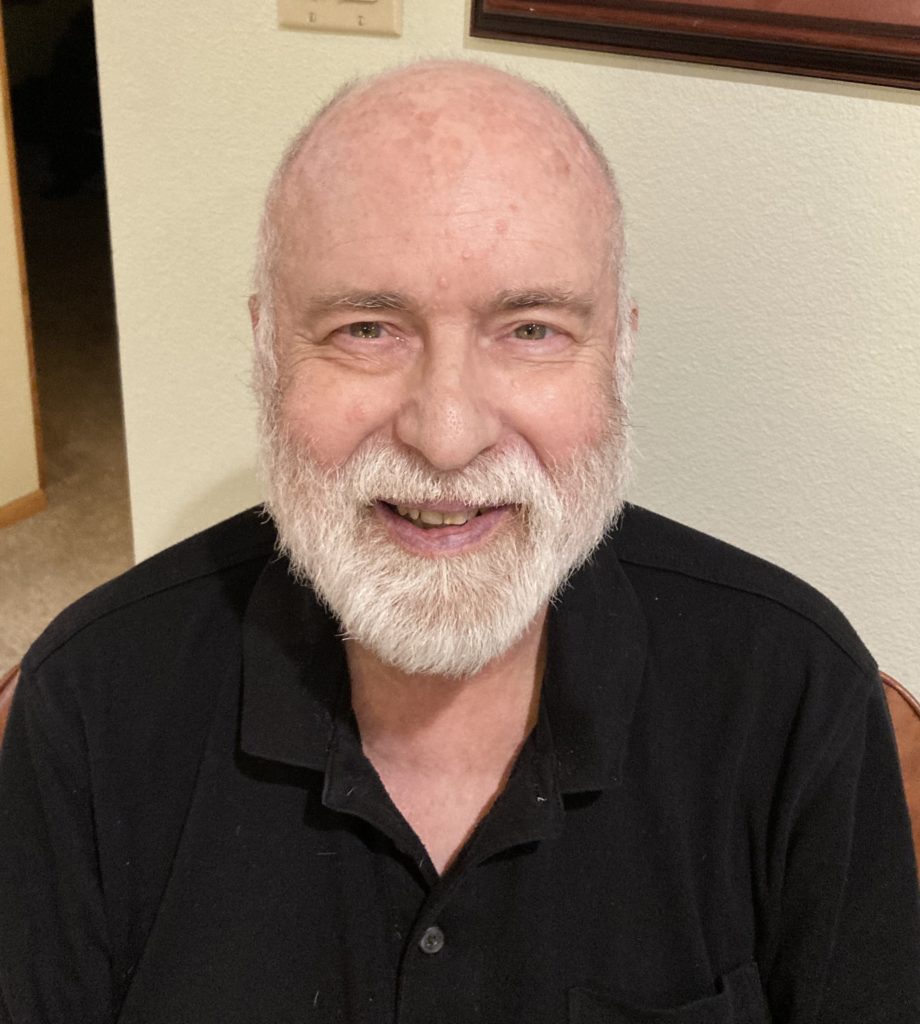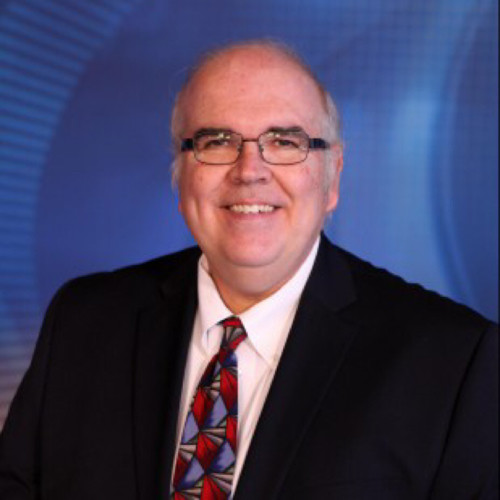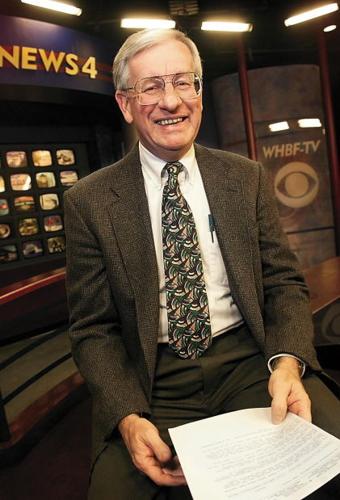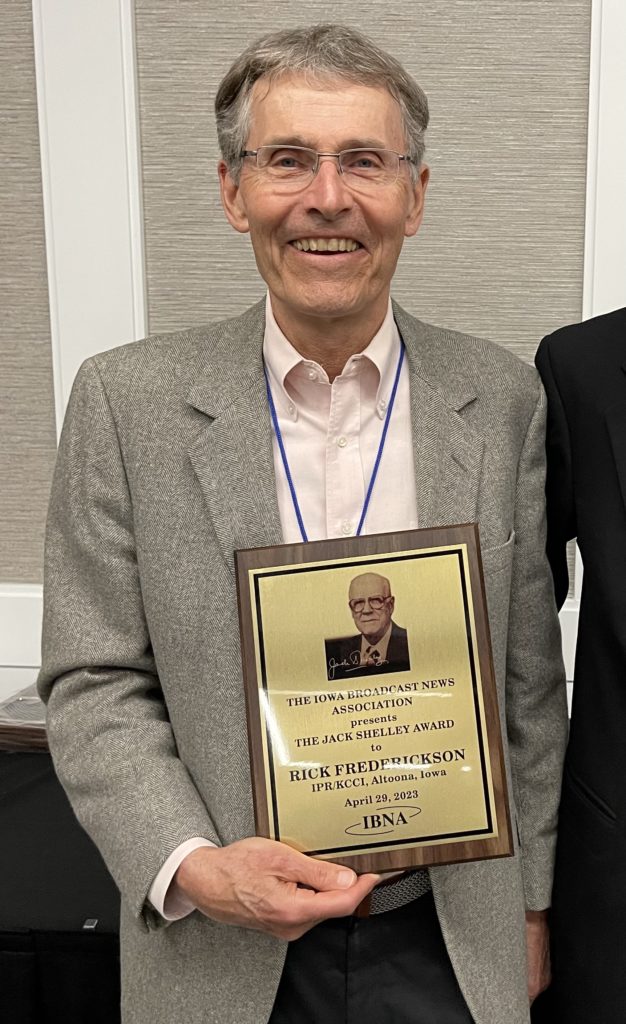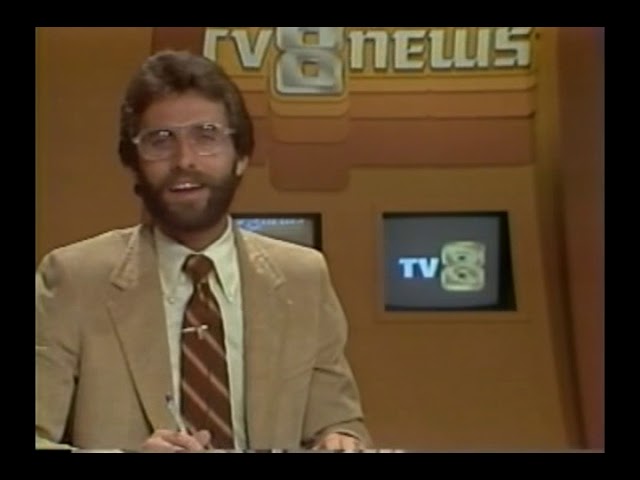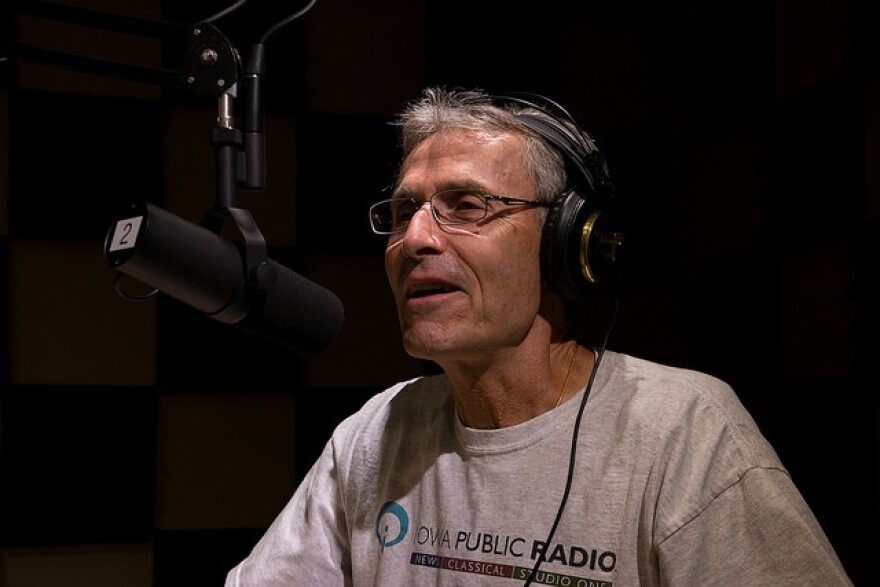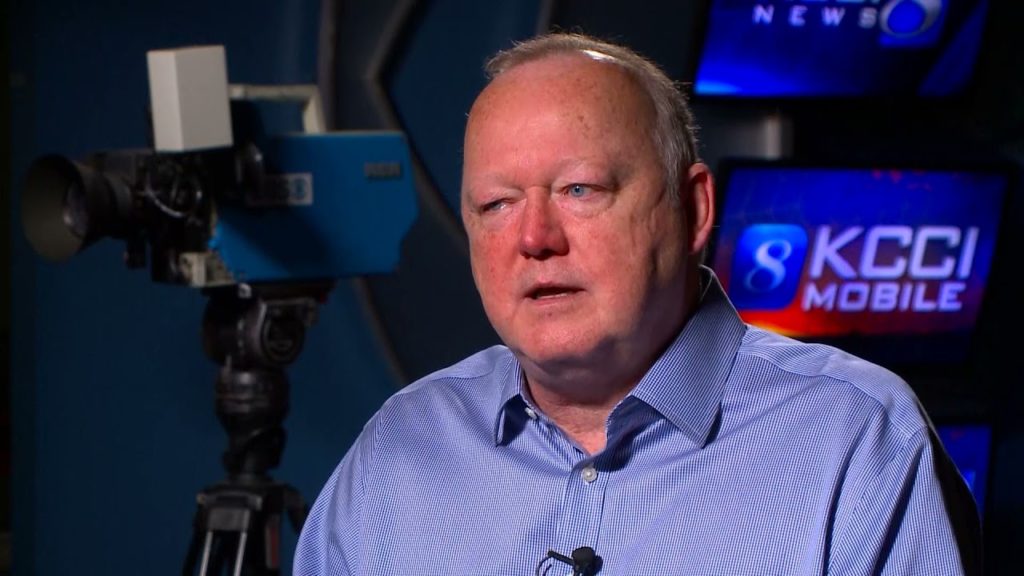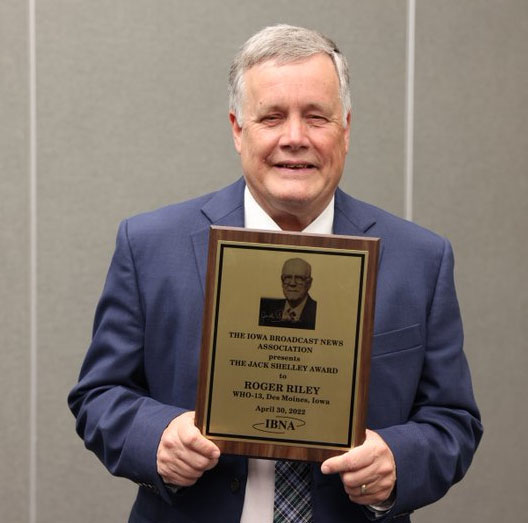
Larry Wentz has been a broadcast journalist for nearly 50 years, working at stations in Iowa and Wisconsin. He arrived in Sioux City in 1991 and has anchored at all three Sioux City TV stations. Currently Wentz is the noon anchor at KTIV.
Wentz talked about his career during an interview for the Archives of Iowa Broadcasting Oral History Project. (Watch the full interview here.)
How did you get interested in broadcast journalism? My parents listened to the radio in their shop a lot. I kind of got a love for that on our little hometown radio station. I started working there in college doing weekends and summer fill-ins, that type of thing and that kind of piqued my interest. I ended up going to Iowa State University in Ames because I thought they had a lot of broadcasting classes.
You’ve worked in Sioux City for a long time, you must like it there. I have to take it as a sign of respect. And if they didn’t like me or respect me, I think it would have turned out to be different.
It was around 2011 that you had a serious health problem and needed a liver transplant. Tell us about that. I had what was called autoimmune hepatitis, it’s an autoimmune illness, it decides it wants to attack a portion of your body and it just happened to get my liver. I was fortunate enough that we had the University of Nebraska Medical Center, the lead transplant center, close in Omaha. I got lucky that I was able to get a liver. For a while it looked pretty, pretty tenuous there. And then I was out of commission for basically a year.
You’ve covered popes and presidents, floods and plane crashes. But tell us about a fun story you’ve done. One of them that I really had a lot of fun with was Kathleen Freeman. I don’t know if people remember her, but she was Sister Mary Stigmata on the Blues Brothers. She had come to do the Donna Reed festival in Denison, Iowa. I was going to do a live interview with her, I think on our six o’clock newscast. And she asked me before we went on “do you want me in character?” Well, yeah, of course. She put on an old kind of a floppy hat with a flower in it if I remember right, and she was just, she was just crazy. It was an awful lot of fun.
What changes in broadcast journalism have you seen during your long career? When I first started in the business, you had a reporter who would go out with a photographer and normally the photographer would edit (the stories). Now these young people, they don’t call them reporters anymore, they call them multimedia journalists. And that means they do about 10 things at once. They not only go out and shoot the story, but they may have to take their laptop computer with them to go an hour away from town and edit their story out there. They also take what they call a “live view” instead of having a live truck go up there or a satellite truck an hour away. They take a little unit with them where they can plug into the internet, and they can feed their story back from there as well as do a live report.
You’ve done some teaching as well. I’ve had an opportunity to teach journalism at Briar Cliff University for a little bit and also at Western Iowa Tech Community College in Sioux City. In fact, at the station I’m at right now KTIV, I’m happy to say we’ve had up to six people who are in some of my classes that are working here at the station. And that’s very rewarding.
What do you hope your legacy will be? The only legacy I hope that I leave is that people think that I was fair. I look at this not as just a job, I look at it as a calling. And that calling to me was trying to be fair and accurate.
Wentz won the 2012 Jack Shelley Award, the IBNA’s highest honor. He has also received numerous awards for his reporting and anchoring, including a regional Emmy for coverage of the 2011 flood in Sioux City.
